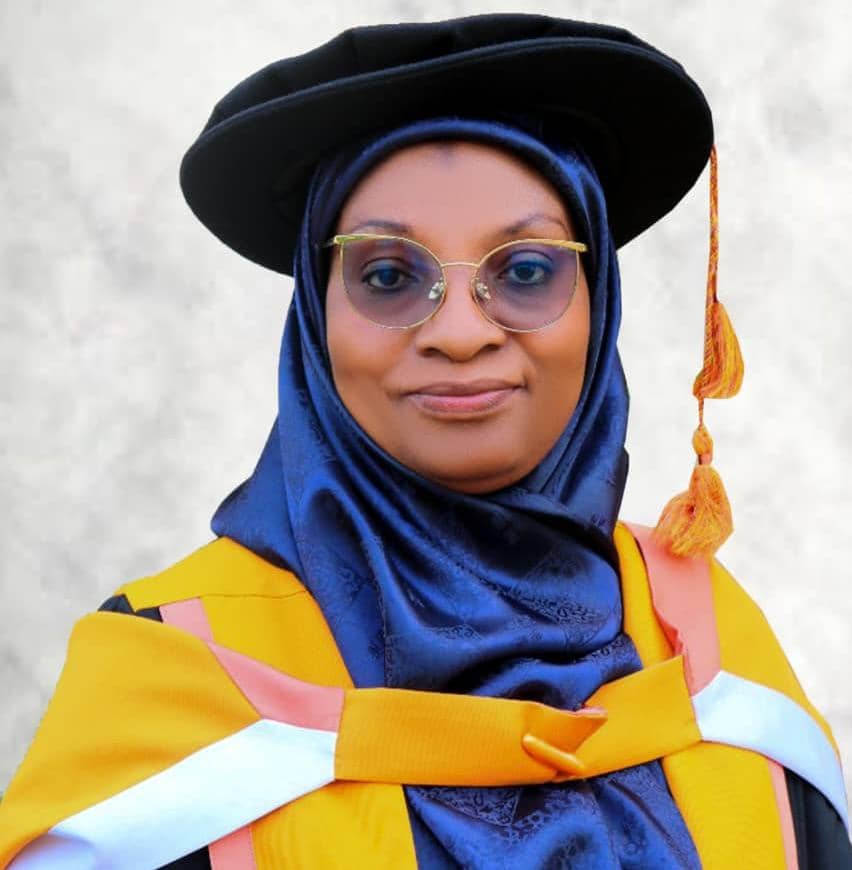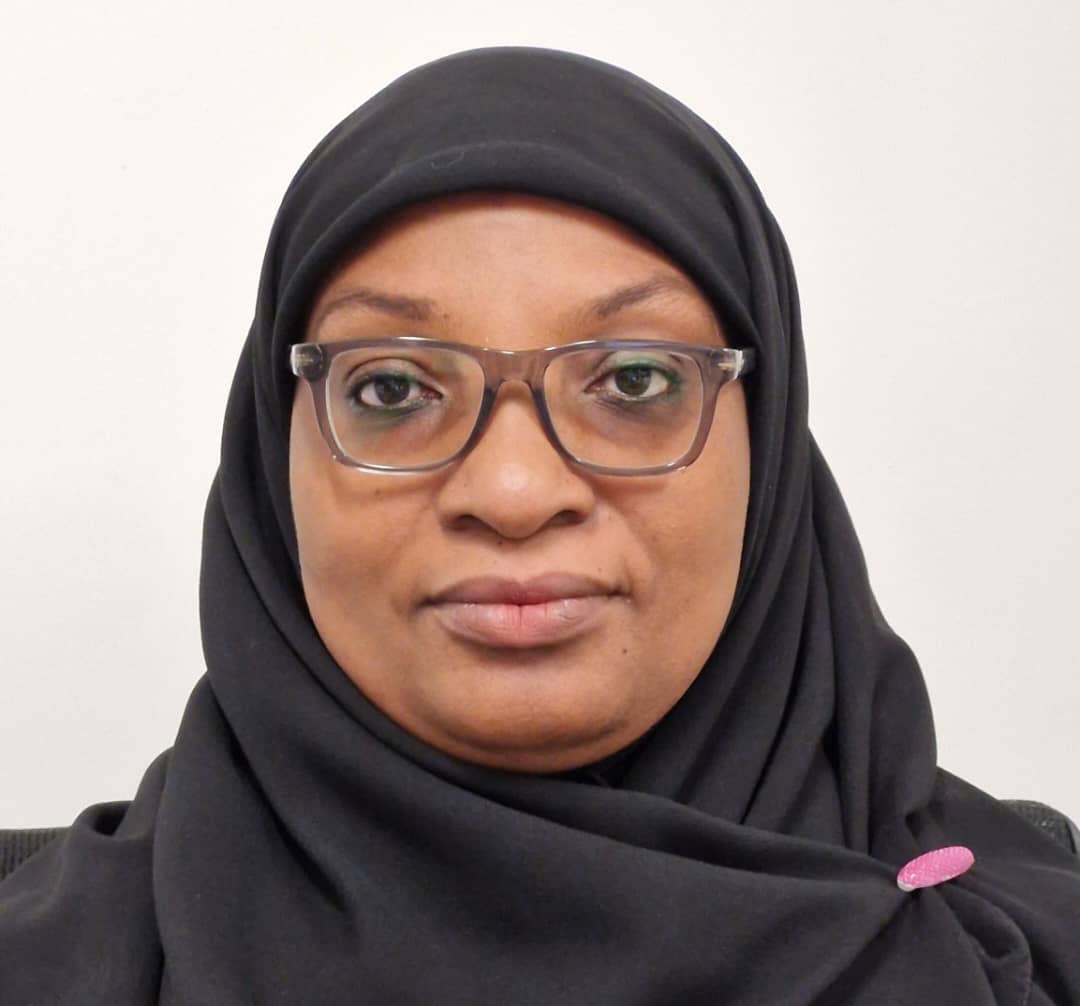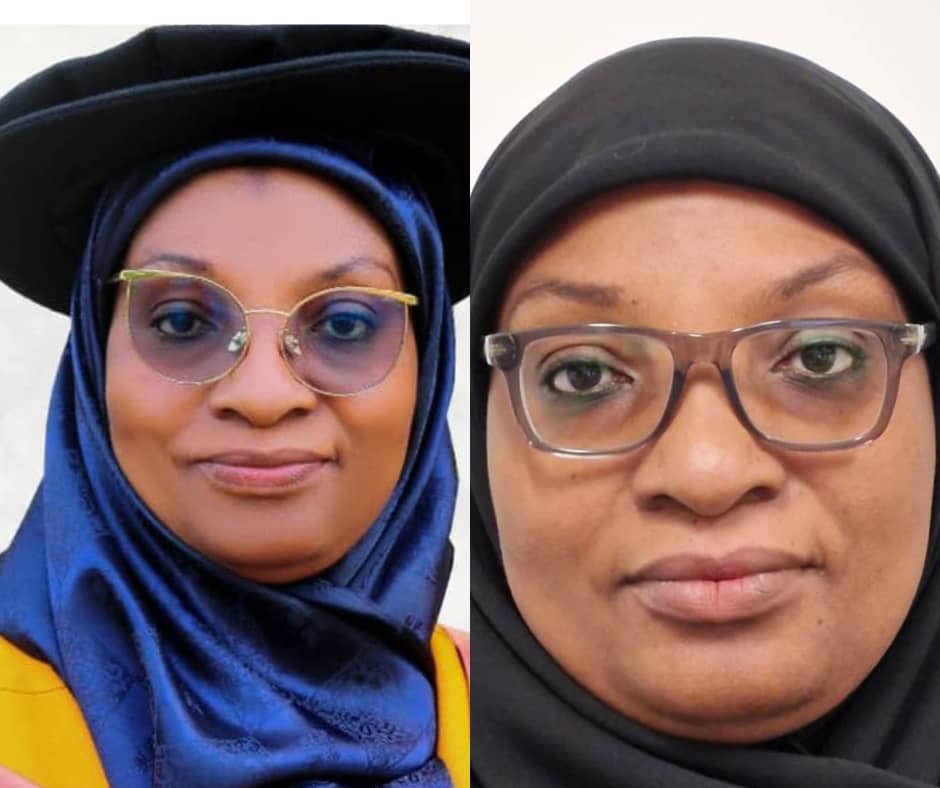In this enlightening and exclusive conversation with Allaboutschools correspondent, Akeem Alao, Professor Adeola Tawakalitu Kola-Mustapha, recently promoted to the rank of Professor of Pharmaceutics and Industrial Pharmacy at the University of Ilorin, shares her personal experiences, her motivation for pursuing a career in pharmacy, and her unwavering commitment to mentoring the next generation of scholars.
Her remarkable journey is one of resilience, faith, and academic excellence. From overcoming early setbacks and societal challenges to making significant contributions to Nigeria’s educational and healthcare sectors, she embodies the spirit of determination and dedication.
Read her inspiring story and gain insight into how she bridges academic research with practical healthcare solutions in Nigeria.
Ma’am, could you please introduce yourself?
My name is Adeola Tawakalitu Kola-Mustapha, and I have recently been promoted to the rank of Professor of Pharmaceutics and Industrial Pharmacy at the Faculty of Pharmaceutical Sciences, University of Ilorin. My academic journey began at Adeniyi Jones Primary School, Ikeja, and continued at the Federal Government Girls College, Owerri, Imo State. I then proceeded to the University of Lagos, where I studied Pharmacology and graduated with First Class Honours in 1997.
Driven by my passion for pharmacy, I returned to the University of Lagos to study Pharmacy and later completed my mandatory one-year internship at the Nigerian Army Hospital in Yaba, Lagos. Following this, I pursued a Master’s degree in Pharmaceutics and Pharmaceutical Technology. My PhD journey began at the University of Lagos but later transitioned to De Montfort University in Leicester, UK, where I also gained valuable experience working as a Technical Demonstrator and Part-Time Lecturer. After completing my PhD, I remained in the UK for an additional year, working in a pharmacy and continuing my role as a Part-Time Lecturer while searching for opportunities in academia. Fortunately, I received a lecturing position at the University of Ilorin. With a deep passion for academia and a commitment to contributing to Nigeria’s educational sector, I gladly returned home to begin the next chapter of my career.

Reflecting on your journey, what motivated you to pursue a career in Pharmacy and how did your faith and values shape this path?
Reflecting on my journey, it is evident that my path has been anything but conventional. I had always aspired to study Pharmacy, but I was offered Pharmacology instead after falling short of the JAMB cut-off mark. Determined to pursue my dream, I worked hard to transfer to Pharmacy in my second year, but it was unsuccessful. While Pharmacy is a professional course, Pharmacology is a basic medical science discipline and one of the six departments within the Faculty of Pharmacy, as well as part of the College of Medicine.
After earning my first degree, finding a job proved challenging. The most available opportunities at the time were roles as medical sales representatives, positions in academia, or graduate trainee programs. However, as a Muslimah who wears the hijab, I faced additional hurdles. Some companies were not receptive to my mode of dressing and were unwilling to hire me for graduate trainee roles. I vividly recall an incident where; after completing a successful interview, the company secretary asked me to change my attire—despite wearing a dress suit with my hijab. When I finally met with the principal partner, I was ultimately rejected, and my employment letter was withheld.
These experiences, though difficult, shaped my resolve and strengthened my values. My faith has been a guiding light throughout my career journey. As a Muslim, I firmly believe that Allaah is the best of planners and that His wisdom enables all things, even in the face of struggles and challenges. Through patience, perseverance, and unwavering faith in Allaah, I remained resolute, striving to give my best through hard work and dedication. Today, I can say with gratitude that everything has indeed turned out for the better. My journey, though unconventional, has reinforced the importance of trusting in the process, holding onto faith, and staying committed to one’s values.
As someone who has excelled academically both locally and internationally, what challenges did you face during your Ph.D. abroad, and how did you overcome them?
The first major challenge I faced during my PhD abroad was funding. Without a scholarship, I was self-funded, relying heavily on personal savings and family support to cover my tuition fees. To make ends meet, I turned to selling apparel—a business skill I had learned during my earlier years. Despite searching for jobs, I was largely unsuccessful and had to depend on savings from past businesses and even sold valuables to sustain myself while completing my research in the UK.
To manage my immediate needs, such as accommodation and transportation, I took up part-time work as a lecturer. I vividly recall buying bus tickets for the academic session, but once summer came—when the tickets were no longer valid—I had no choice but to walk. The 40-minute walk to and from campus was long and tiring, but it was necessary to keep going.
Another significant challenge was my limited experience with sophisticated laboratory equipment. My previous studies had not provided me with the expertise to handle these tools, leaving me observing from a distance. To overcome this, I actively volunteered for every pharmaceutical or cosmetic science laboratory procedure I could find, even while working as a technical demonstrator and part-time lecturer. These volunteer opportunities allowed me to hone essential bench work skills. I am also grateful for the guidance and support of my supervisors, who helped me develop quickly and gain the confidence I needed. Through it all, I am immensely grateful to Allaah and my family, whose unwavering support kept me going throughout my ‘adult’ student life.
You’ve transitioned from being a student to mentoring the next generation of scholars. How do you approach teaching and mentoring to inspire excellence and resilience in your students?
I spent many years as a student, which gives me a deep understanding of the challenges and struggles that students face. My educational journey spans experiences in both Nigeria and the UK, offering me valuable insight into different teaching and learning systems. In the UK, I completed the Teaching in Higher Education course, a prerequisite for teaching in classrooms and laboratories. Later, I earned a Postgraduate Diploma in Education (PGDE) from the Institute of Education, University of Ilorin, where I developed essential pedagogical skills for effective teaching. I always recommend the PGDE program to teachers who aspire to be fully equipped for the classroom experience.
Teaching has been a lifelong passion of mine, driven by the desire to positively impact the younger generation. I vividly remember completing my PhD and announcing my decision to return to Nigeria to take up a lecturer position. Many were surprised, questioning why I would pursue a role that seemingly offered little return on the investment of my doctoral education. My answer was simple: I wanted to teach and give back. I accepted the opportunity at the University of Ilorin without hesitation, and to this day, I am glad I made that choice.
As a teacher, I inspire my students to strive for excellence by helping them understand the practical applications of their courses and the benefits these hold for their careers. I ensure that they are well oriented to the nature of the course and its learning outcomes. As a mentor, I actively share lessons from my own journey to help students navigate challenges and avoid similar mistakes. My goal is not just to teach, but to shape and empower the next generation of leaders and innovators.

Pharmacy has a direct impact on healthcare and humanity. How do you ensure your work contributes to bridging the gap between academic research and practical healthcare solutions in Nigeria?
Since as a Professor of Pharmaceutics and Industrial Pharmacy, I embrace a tripartite responsibility: teaching, research, and community service; my goal is to ensure that my work contributes meaningfully to bridging the gap between academic research and practical healthcare solutions in Nigeria. To achieve this, I focus on these key strategies:
- Collaborative Research with Industry and Healthcare Providers
I prioritize collaboration with pharmaceutical companies, healthcare providers, and government agencies to ensure academic research addresses real-world healthcare needs. For instance, my work focuses on the development of natural products. Such collaborations help transform research findings into practical solutions that benefit patients and the healthcare system. - Teaching Focused on Practical Skills
In my teaching, I emphasize practical, industry-relevant skills. I ensure that the curriculum covers not only theoretical knowledge but also hands-on experiences, such as laboratory techniques, drug formulation, quality control processes, and regulatory affairs. By preparing students for the realities of the pharmaceutical industry, I am helping to produce graduates who can contribute meaningfully to healthcare solutions. - Community Outreach and Public Health Initiatives
I actively engage students in community medical outreach programs that educate the public on responsible drug use, proper dosage, and the role of pharmaceutical care in managing chronic diseases. These initiatives allow students to see the direct impact of their academic work on local communities, bridging the gap between research, education, and practical healthcare. - Research on Local Health Issues
My research is focused on addressing Nigeria’s unique healthcare challenges. I develop practical pharmaceutical formulations and explore evidence-based approaches for natural product drug delivery, tailoring solutions to the specific health needs of our population. This ensures that research outcomes have direct applications in improving public health. - Policy Advocacy and Knowledge Sharing
I actively engage with policymakers to advocate for improved healthcare policies, particularly in the pharmaceutical sector. By sharing evidence-based insights from academic research, I highlight the critical role of pharmaceutical sciences in shaping sustainable and efficient public health systems. - Focus on Local Resources and Sustainable Practices
A significant part of my work involves harnessing local plant resources, improving drug production processes, and developing natural products that can be manufactured locally. This approach not only strengthens the local pharmaceutical industry and economy but also ensures access to essential medicines in underserved and remote areas.
By integrating these strategies into my work, I aim to bridge the gap between academia and practical healthcare, ensuring that my contributions as a Professor of Pharmaceutics and Industrial Pharmacy have a lasting, positive impact on healthcare delivery and access in Nigeria.
Many young women look up to you as a role model. What advice would you give to aspiring female scholars and professionals striving to balance faith, academic excellence, and societal contributions?
As women, we often encounter challenges in maintaining a healthy work-life balance, but these should not deter us from pursuing our goals. I encourage aspiring female scholars to focus on what truly matters and seek the support of their spouse, family, or support system. Personally, I am deeply grateful for my spouse’s support, which has been instrumental in helping me navigate my career while achieving a sustainable work-life balance.
To succeed, I advise women in academia to prioritize professionalism, strive for excellence in research, and uphold strong ethical values. It is essential to persevere, rise above challenges, and remain dedicated to excelling in their academic and professional journeys. Additionally, giving back to others and contributing to society is equally important—it creates a positive impact and fosters a better future for all.
Finally, as a Professor at the University of Ilorin, what future goals or initiatives are you passionate about pursuing in your academic and professional journey?
I am deeply passionate about mentoring and establishing a strong role-modelling framework where senior academics actively guide younger professionals in their careers. It brings me immense joy to envision my mentees excelling in major roles and contributing significantly to their fields. My goal is to see younger scholars rise through the academic ranks to become professors, and I aspire to be recognized as a ‘mother of professors.’ I am equally inspired by the opportunity to shape the future of education and research at the University of Ilorin. I look forward to collaborating with colleagues and students to achieve these shared aspirations. Additionally, I am committed to advancing research in novel drug delivery strategies to address various diseases prevalent in our country. I also envision new graduates embracing and integrating emerging technologies, such as artificial intelligence and other advanced tools, to drive innovation and enhance pharmacy practice. These initiatives reflect my dedication to fostering progress in both education and healthcare.”












